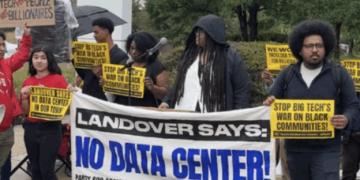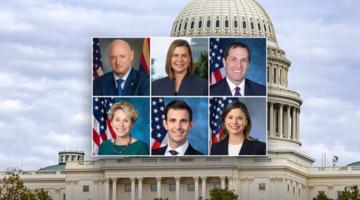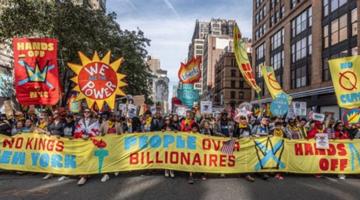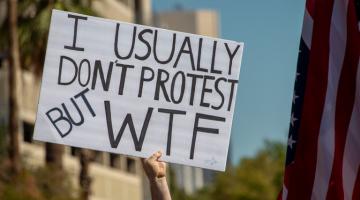No one better exemplifies the Democratic Party’s overarching identity politics than California Governor Gavin Newsom. He engineered the appointment of San Francisco’s first Chinese mayor, appointed California’s first Black Secretary of State, California’s first Latino Senator, and now its second Black woman Senator, Laphonza Butler. Butler is also the first Black and LGBTQIA Senator. She is married to a Black woman, with whom she shares a daughter. Nearly all the reporting on her appointment foregrounded her race and sexuality with an abundance of hollow platitudes.
Butler’s liberal Democratic and identitarian credentials, like Gavin Newsom’s, all but glow in the dark. Throughout her career she won the honor of being the first Black, first Black woman, and/or first Black LGBTQIA woman in the positions she ascended to. They include President of the Service Employees International Union (SEIU) United Long Term Care Workers, a union of 400,000, then President of the California SEIU State Council.
She was the first Black woman and the first mother to become president of Emily’s List, the American political action committee (PAC) that raises funds to elect Democratic female candidates in favor of abortion rights. That is the office she is leaving to become a US Senator.
Butler also rose from humble origins to the powerful positions she has occupied. Born in Magnolia, Mississippi, she lost her father to heart disease at age 16, and her mother worked as a classroom aide, home care provider, security guard, and bookkeeper.
She earned a bachelor’s degree in political science at Jackson State in Jackson, Mississippi, a Historically Black College and University (HBCU).
Identity triumphs aside, what can we expect from Laphonza Butler?
The Sacramento Bee describes Butler as a Democratic Party insider, who has “worked at high levels in almost every place where Democrats are strong: a former top California labor official, president of an influential women’s political organization and adviser to Kamala Harris, Hillary Clinton and other party luminaries.”
In 2010, as President of the SEIU United Long Term Care Workers, she helped secure a shared endorsement for Kamala Harris in her successful run to become California Attorney General, and she is understood to have a long-running alliance with Harris. In 2020 she worked as an advisor to Harris’s vice presidential campaign.
In 2016, as president of SEIU Local 2015, she endorsed Hillary Clinton in the 2016 Democratic presidential primary. Later she was one of the California electors who voted for Clinton in the 2016 election.
Some union leaders celebrated Butler’s appointment, but others expressed alarm, including many who remember her time working with tech giants Uber and Airbnb. In 2019, while at SCRB Strategies, a Bay Area consulting firm with strong ties to Newsom and other top Democrats, Butler helped Uber pass California Ballot Proposition 22 to override California Assembly Bill 5 (AB 5), which had expanded labor protections for gig workers by defining the difference between an independent contractor and an employee and thereby compelling the companies to reclassify many drivers as employees and provide them higher pay and benefits. Uber and other gig economy tech companies like Lyft and Instacart poured $200 million into passing Prop 22, making it the most expensive ballot proposition in California history at the time.
Newsom just vetoed a bill that would have required human drivers in autonomous vehicles of over 10,000 pounds—from UPS delivery trucks to big rigs—on public roads. The California Labor Federation argued that the driverless trucks are unsafe and that removing drivers will cost a quarter of a million jobs. Butler’s critics said it’s in keeping that the governor would thus appoint someone like Butler, who used her rise to the top of a major union to catapult herself into the jobs with some of the corporations most guilty of degrading labor in the gig economy.
At Airbnb, a multibillion-dollar corporation responsible for pushing up rents and fueling the housing shortage, Butler served as director of public policy and campaigns.
In foreign policy, she has no track record, but the Sacramento Bee wrote that she “is expected to bring stability and reliability to votes confirming judges, approving more aid to Ukraine, and funding government programs.” In other words, she’ll be a “good Democrat.”
Will she run?
The most asked question about Butler’s appointment is, “Will she run in the 2024 election?” She has only nine weeks to decide because the filing deadline is December 8, but it’s hard to imagine that Democratic operatives aren’t huddling with her about this now that Kamala Harris has sworn her in. She will have the advantage of incumbency for only four months before the March 5 primary, but should she win that, she’ll have more than a year by the time of the November 5 election.
California Democratic Congresspersons Adam Schiff, Katie Porter, and Barbara Lee are all campaigning for Feinstein’s seat, but there are no Republicans in the race yet. Schiff is ahead in both the polls and the fundraising, with Porter in second, and Lee a distant third.
California holds non-partisan, “top two” primaries, meaning that the top two vote getters will face off in the November 5 election. So it’s all but certain that two Democrats will face off after the March 5 primary. The state hasn’t elected a Republican Senator in 30 years.
At first Newsom said that if he had to face the decision to appoint someone to replace Feinstein, he would choose a Black woman but that he would expect her to serve as a caretaker, holding the seat for whomever wins the 2024 election because he didn’t want to “interfere” in that race by giving anyone the advantage of incumbency. However, the optics were bad and he got a lot of pushback. Why stress appointing a Black woman just to keep Feinstein’s seat warm for a year? In the end Newsom did not extract a promise from Butler not to run.
The Congressional Black Caucus urged Gavin Newsom to appoint East Bay Congresswoman Barbara Lee, who represents California’s 12th District, which is much of the California’s urban East Bay, and one of the bluest districts in the country.
Despite claiming not to want to hand the advantage of incumbency to Lee or any of the three candidates already in the race, he ultimately handed it to the little known Laphonza Butler, who may or may not take advantage of it.
Barbara Lee is best known for casting the lone vote against the Patriot Act after 9/11, then opposing the Afghanistan and Iraq Wars, and she has some distant history with Oakland’s Black Panther Party. She is now, for the most part, a “good Democrat,” but not as good as Laphonza Butler might be. Nancy Pelosi, a close ally of Newsom, has been supporting Russiagate-crazed, Adam Schiff.
Gavin Newsom is all but certain to be a Democratic presidential candidate, whether in 2024 or 2028, and he has now burnished his identitarian credentials by appointing Laphonza Butler while avoiding giving the advantage of incumbency to Barbara Lee, a candidate with dissident history.
Newsom's appointment of Butler will also divide identitarian voters who will prioritize race and sexuality, thereby increasing Adam Schiff's chances. And Schiff never saw a war he didn't like.
Ann Garrison is a Black Agenda Report Contributing Editor based in the San Francisco Bay Area. In 2014, she received the Victoire Ingabire Umuhoza Democracy and Peace Prize for her reporting on conflict in the African Great Lakes region. She can be reached at ann(at)anngarrison.com. Please help to support her work on Patreon.


















